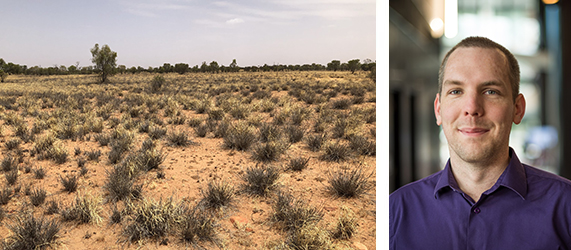These bacteria extensively remodel their metabolic pathways to maintain energy needs when limited for organic carbon and oxygen. I will illustrate these findings with case studies from two very different types of sands. First, the finding that bacteria in desert sands adapt to extreme nutrient limitation by ‘living on thin air’, i.e. scavenging the trace gases hydrogen and carbon monoxide from the atmosphere. Second, the finding that bacteria in beach sands constantly shift between respiration and fermentation to stay energised during transitions between oxic and anoxic states. These findings are supported by a combination of metagenomic, biogeochemical, and culture-based work. The wider ecological and biogeochemical significance of these discoveries will also be considered.
Chris Greening completed a BSc/MSc in Molecular and Cellular Biochemistry (University of Oxford, 2010) and PhD in Molecular Microbiology (University of Otago, 2014). His doctoral research focused on unravelling the physiological roles of the enzymes responsible for H2 metabolism in environmental mycobacteria. He subsequently gained postdoctoral experience in Microbial Ecology and Molecular Evolution at the University of Otago, CSIRO, and the Australian National University. Chris joined Monash University as a lecturer in June 2016 and was awarded an ARC DECRA Fellowship in November 2016. Chris’ research group, the Integrative Microbiology Lab, uses an interdisciplinary approach to explore the metabolic strategies through which environmental and pathogenic bacteria persist under adverse conditions.
